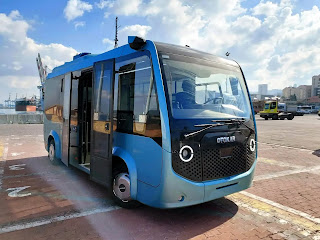Back in May, President Trump abruptly dismissed "dozens national security advisors from US National Security Council (NSC). NPR reported that the Middle East section at the NSC was being reduced from 10 staffers to five.
Trump also dismissed his national security adviser, Mike Waltz, and gave that position to Marco Rubio on top of Rubio's job as Secretary of State, and Rubio's role as Assistant to the President for National Security Affairs.
Trump turned to Steve Witkoff, his longtime friend from his New York real estate days, to be his point man on the Iran nuclear negotiations. Witkoff, who has no national security experience whatsoever, is also the main negotiator in US efforts to end the Russia-Ukraine war.
Among those reported to have departed the NSC are Principal Deputy National Security Adviser Alex Wong, Senior Director for the Middle East and North Africa Eric Trager, Senior Director for Europe Andrew Peek, as well as communications team members like Deputy National Security Adviser for Strategic Communications Brian Hughes.
Trump finds NSC's processes, "unnecessarily complex," and sees the NSC giving priority to the opinions of career officials over his "policy preferences."
Trump's Director of National Intelligence — for now — is Tulsi Gabbard. She had the misfortune to state publicly that Iran did not have the intention to create a nuclear weapon, only to be publicly corrected by the President, who was clearly thinking ahead to his address to the Nation on bombing the bejesus out of Iran's nuclear facilities.
Trump's CIA Director is John Ratcliffe, his FBI Director is conspiracy theorist, Kash Patel, and of course, the man picked to be his Secretary of Defense is former Fox News personality, Pete Hegseth.
The US agency that may have the most important role in protecting Americans from any retaliatory actions from Iran, or other actors sympathetic to the Iranian regime, will be the Department of Homeland Security (DHS), led by former South Dakota Governor Kristi Noem.
Noem has no experience in national security or intelligence, knows little to nothing about counter-terrorism, counter intelligence, cyber security, terrorism fusion centers, joint terrorism task forces, suitcase nukes, dirty bombs, Iranian sleeper cells, radicalized lone operators and their profiles, extremist messaging and their messaging platforms (though Hegseth may know), underground terrorist financing operations, such as hawala, shell companies, or 'cash mules.' Iran knows all this and more, because this is the way they operate, not with nuclear weapons, but with C4 packed in Easter Eggs.
What I wrote in 2018 titled, "September 11, 2001 Re-imagined," haunts me. It should you, as well, viz.:
The next terrorist attack on American soil is not a matter of if, but when. Determined fanatics willing to die for their cause will usually outwit even a well-managed Department of Homeland Security staffed with highly motivated and trained officers. A bombastic “strongman” equipped with a keyboard and wielding a heavy-handed immigration policy will never be an effective counter to terrorism. A country divided against itself will never be ready, or resilient.
 |
| Pentagon, September 11, 2001 |





